The value of an academic or professional online profile
“Is it worth the time for a researcher or soon to be graduate to create a profile on Research Gate, LinkedIn or Google Scholar? The answer is a resounding YES! It is rather incredible to find out that there are other researchers or organizations interested in you and your work!”
As well, recent graduates can create online profiles to share their skills and experience, and attract the attention of potential employers, and just to keep in contact after graduation. LinkedIn helps our graduates network with organizations looking for possible trainers, evaluators or facilitators in subject areas relevant to CDE. Here’s a selection of the profiles of past or current students in CDE to browse: Elisa Cooper, Madeleine Arseneau, Bushra Khanm, Austin Brown, Shaquille Sealy, Katrin Sawatzky, Jordan MacDonald
Nancy Orr, Spring 2022, shares her research on affordable housing in non-metropolitan areas
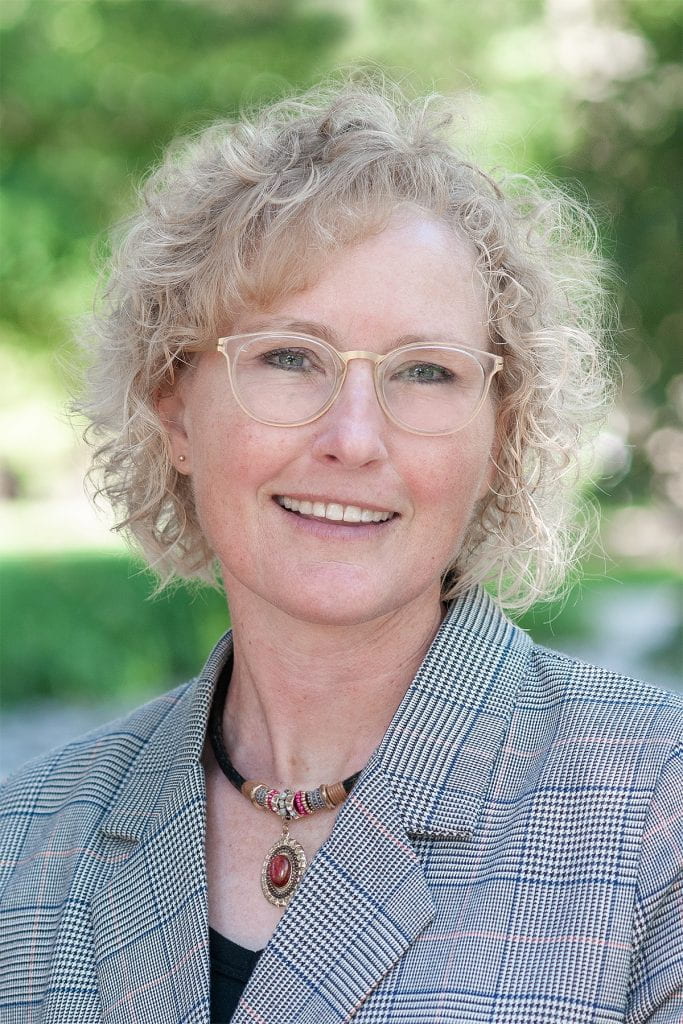
Nancy is a current CDE student planning on defending her thesis in April 2022. Her research explores the crisis of affordable housing and the specific need for local action. She works with her advisor Dr. Al Lauzon.
She runs her consulting firm Nancy Orr & Associates, specializing in all Project Coordination matters throughout South-Western Ontario. Nancy’s experience working with local municipalities and organizations ties into the research she has conducted. She focuses on the variety of roles in both academic research and professional work. Through her research, she examines the importance of responsibilities shared in order to address the affordable housing crisis including the role of political will from elected officials, local champions, housing expertise (both private and non-profit), as well as community citizens.
“It has been widely recognized we are in a housing crisis with far reaching ramifications. The priority of actioning solutions has not been responsive enough to meet community needs, and a market driven economy has not served housing affordability well. All levels of government play a role in the complex system of housing policy, however impacts are felt most heavily at a local level. Communities cannot wait for senior levels of government to design and implement the needed systematic changes. Through the review of three case studies and perspectives garnered from industry leaders, this exploratory research project contributes to understanding what enabling conditions can influence housing affordability in non-metro areas. Solutions require land, a local champion, political will, housing expertise, and community support. Attitudes and capacities of those within these roles is as significant as the roles themselves; collaboration is required with a vision that everyone deserves a home.”
Tips for future CDE students:
“When you find a topic or problem you are really interested in, you can tie it into every project you do.”
Utilize the opportunity to draw on other programs’ courses when you have the opportunity. It can provide other world views and disciplinary approaches.
Book recommendation:
Lind, Diana. 2020. Brave New Home: Our Future in Smarter, Simpler, Happier Housing. Bold Type Books. https://www.boldtypebooks.com/titles/diana-lind/brave-new-home/9781541742642/
Madeleine Arseneau, a current CDE student, shares her research and collaboration with CREATE Climate Smart Soils
My research is examining the role of extension services used by farmers to access and apply soil related information in their fields. My goal is to enhance Canada’s agri-food sector through the understanding of climate-smart soils. This grant and team have allowed me to broaden my horizons, connect with likeminded individuals and participate in experiential learning opportunities with individuals and groups across the agricultural sector.
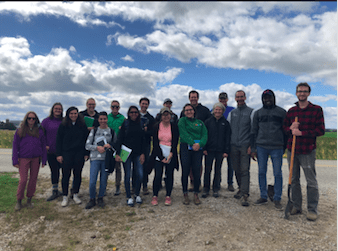
The CREATE in Climate-Smart Soils (CREATE-CSS) is the first multi-institutional soil-centered program to address the need for highly qualified personnel training to sustainably lead Canada’s agri-food sector.
Austin Brown, a current CDE student
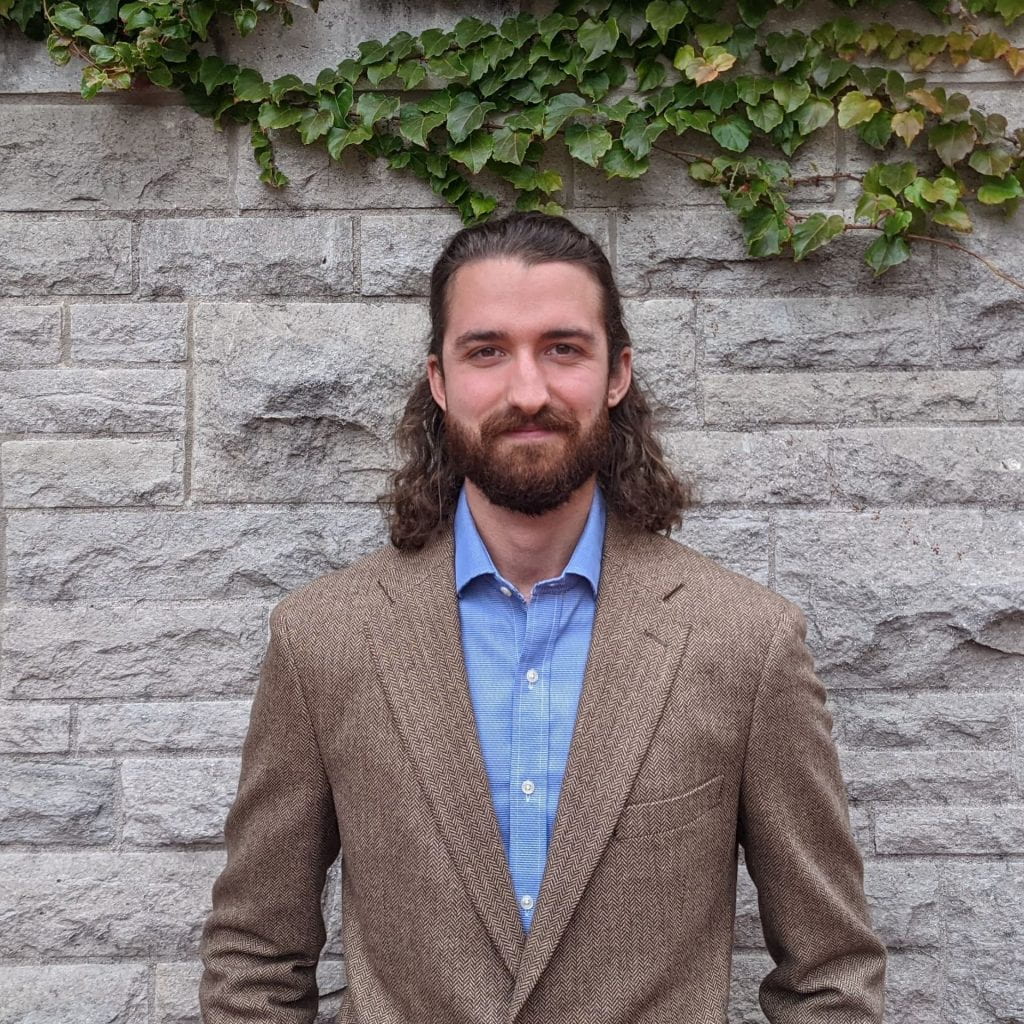
Graduation Date: Spring 2022
My research focuses on digital extension methods, radio+, and agriculture in rural Ghana. I chose the thesis route as I believed it would show stronger research abilities and skills to future employers as well as open future opportunities in Academica.
What is one book/article that you would recommend to an interested student looking into CDE?
I would recommend ‘The Handbook of Rural Development – Chapter 4 – Grassroots Rural Development: models of development, capacity and leadership’ by Stephen P. Gasteyer and Cameron (Khalfani) Herman
This chapter is meaningful to me for many reasons, and I believe it would be of value to potential CDE students. I took the International Development Designation, and this chapter helps to blend the concepts of both disciplines. If you believe CDE(Idev) might be for you, please read this chapter to be (re)introduced to bottom-up development strategies that increase the capacity of the people in rural developing areas.
What is one piece of advice that you have for future CDE students? And current CDE students?
Avoid doing it during a Pandemic. Really though, I found the ‘CDE*6290 Special Topics: Internship Course’ to be of great value. This course was run for the first time in the summer 21 semester, after I had fulfilled my coursework requirements. It was more than worth the extra coursework as I was lucky enough to receive a placement with OMAFRA and subsequently a letter of recommendation.
What is your career/job now?
I am still working to complete my thesis as I write this. However, during my master’s degree I have been able to work multiple contracts that I would not have hired to without being in the CDE program. I researched and developed a food security program in British Columbia. I developed policy for the use of Insects as animal feed. Overall, the program opened many doors before I even completed my studies.
Bushra Khanm, a graduate of the CDE program

Graduation Date: December 2012
This thesis investigates the impact of after-school programs on youth in rural communities. A quantitative analysis of the Fusion Youth Activity and Technology Centre in Ingersoll, Ontario was conducted to explore the relationship between program participation and the development experiences of youth participants ages 12 to 18 years. The Youth Experience Survey created by Hansen and Larson (2002) was selected for this study to assess the positive and negative youth development experiences of Fusion youth participants, measuring experiences within conceptual domains of Identity Work, Initiative, Basic Skills, Positive Relationships, Team Work and Social Skills, Adult Networks and Social Capital, and Negative Experiences. The study found that all domains measuring positive youth development experiences were positively correlated, with the strongest experiences associated with the domains of Identity Work, Basic Skills, Positive Relationships, and Team Work and Social Skills. In addition, the study concluded that participants’ youth development significantly increased with duration of membership and intensity of participation at Fusion.
I chose to do a thesis because I wanted to produce original research/work. Also, I wanted to have an opportunity to do thesis work in case I ever moved forward with a doctoral degree. I’m glad I did because now I’m a third year Doctor of Education student, and I’m one of only two students who completed a thesis in their masters and it’s been profoundly helpful in my current doctoral research.
What is one book/article that you would recommend to an interested student looking into CDE?
Ask the librarian or CDE professors to recommend past CDE theses that you can read. By doing this, you will get a sense of: 1) what research looks like and the academic format is similar across most theses, and 2) CDE is vast – there so many different learning/topics and they all intersect with CDE in the middle.
What is one piece of advice that you have for future CDE students? And current CDE students?
I think of CDE is an “approach to making things better”. CDE taught me real skills and challenged my worldview lens. CDE is about youth/adult learning, stakeholder analysis, ethical decision making, why people think the way they think (epistemology), how can you challenge systems to bring about impactful changes, learning to unlearn, etc.
What is your career/job now?
I’m a fulltime doctoral student at the University of Toronto (OISE) in the Educational Leadership and Policy program. In addition, I’m a professor of communication and leadership development at Seneca College. Prior to my current roles, I was in nonprofit program management in NYC and Toronto. CDE absolutely helped me with my career readiness – by focusing on transferrable skills, such as, academic writing, literature analysis, facilitation techniques needed for youth/adults, boiling down large amounts of information and then presenting it in a non-convoluted, plain and effective manner.
Jordan MacDonald, a graduate of the CDE program
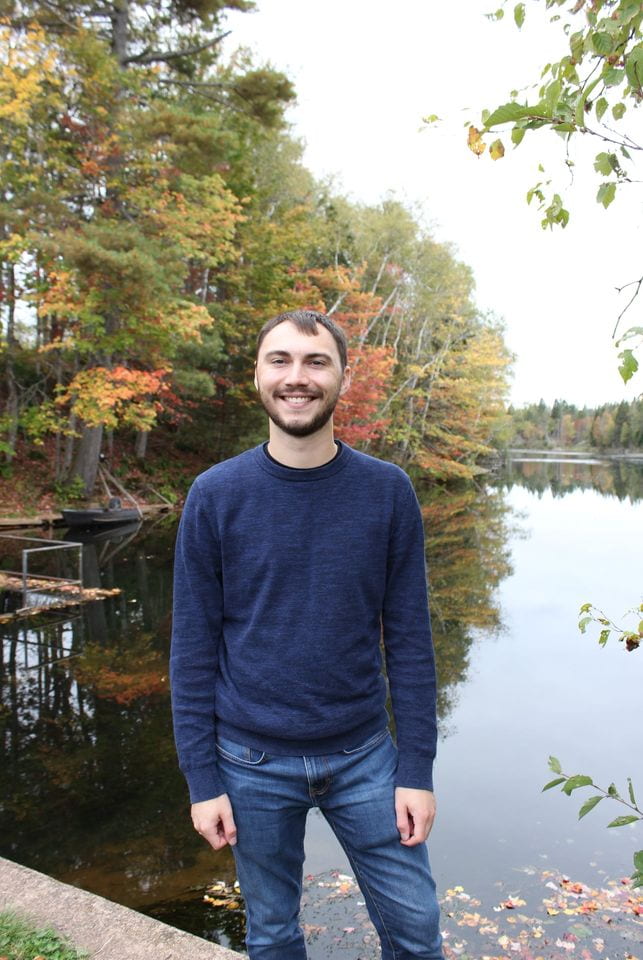
Graduation Date: October, 2020
Describe what your research is about?
My research focused on the integration of non-profit employment resources centres into their local communities in Nova Scotia. I explored the ways in which these organizations integrated into their communities and developed place-based approaches to employment services.
My research was informed by an internship completed at a Work BC Centre which I was able take part in as it aligned with my research interest at the time. I was thankful for the ability to complete this internship while remaining a student in the CDE program.
Why did you choose to do an MRP/thesis?
Thesis: I wished to complete a thesis as I wanted to have the option to deeply explore a topic while having the experience of completing my own research process, data analysis, and result dissemination.
What is one book/article that you would recommend to an interested student looking into CDE?
Hmm. This is a tough question as I have been out of the academic loop for a while. For me I went directly from my BBA program with a minor in Sociology into CDE. My reading was initially focused on social enterprise development but then moved into the development of the social sector more broadly and its role in delivering public services and furthering community objectives.
I am a very practical person and at the moment I find myself acting in a particular practice rather than reading and contributing to a specific body of literature. From this perspective I would say that folks interested in CDE should be passionate about their communities, comfortable assessing the context through a variety of lenses, and interested in identifying pathways to achieve collective goals using a variety of tools.
What is one piece of advice that you have for future CDE students? And current CDE students?
Advice for future CDE students:
The topics of the CDE umbrella are diverse and appear in a number of different personal, professional, and academic spaces. If you are drawn to the program and its content I would encourage you to meet with one of the faculty members and discuss your personal interests and how you can leverage the program to meet your own curiosity and personal and professional goals.
Advice for current CDE students:
Allow yourself opportunities to discover new topics and explore topics that interest you. It is gratifying to make connections and see the linkages between issues and topics that on the surface seem to be remote.
What is your career/job now? Did CDE help you attain this career/job?
I first worked for a non-profit co-operative organization while it developed an additional community care facility for my home community. I have since transitioned to be an Economic Development Officer with Alberton Community Development Corporation. It has been very exciting to be able to move back to my home region of Western PEI and find work in my field.
My CDE education has really informed the way that I conduct my work and expanded my understanding of available resources and needed skills to complete this work. I feel that the theoretical concepts explored in the MSc. CDE program help inform the practices that I carry out each day in my current job.
While not a requirement, I feel that my background in CDE is an asset to attaining and retaining this position.
Elisa Cooper, a graduate CDE student, shares her research and work experience
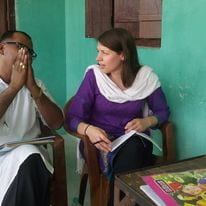
Graduation Date: September 2017
Describe what your research is about?
My research was focused on examining the dynamics of learning within a community-based organization in rural Bihar, India.
Why did you choose to do an MRP/thesis?
I chose to do a thesis because I wanted to strengthen my research capabilities. I wanted to bring more rigour to the research aspects of the work I was already doing. I also wanted to use my master’s program to contribute in some way to the organizations with which I was already working and I felt a thesis would best allow be to do this.
What is one book/article that you would recommend to an interested student looking into CDE?
One of the books that really guided my thinking around my thesis was Panarchy, edited by Gunderson and Holling (2002). It explores the dynamics of complex adaptive systems, which can include ecological or human systems that behave in ways that cannot be entirely predicted or controlled due to the dynamic interactions of a large number of complex factors. CDE is an interdisciplinary program that seeks to strengthen capacity in students to understand and intervene in complex processes of social and environmental change. The concepts in this book are really helpful in developing a foundation of systems thinking.
What is one piece of advice that you have for future CDE students? And current CDE students?
If you’re doing a thesis, participating in the Dissertation Boot Camp is incredibly helpful. If you have a chance to, definitely take it. Aside from DBC, there are loads of resources available through the library and it’s worthwhile to take some time to plan out how you can use them to make the process of carrying our your research and writing your thesis easier.
What is your career/job now? Did CDE help you attain this career/job?
I work with a network of community-based organizations in Africa, Asia and the Pacific. I support them in systematizing the global and continental processes of learning about the programs that they implement. I was already doing this work before I started the CDE program. I chose to enroll in CDE because I thought it would assist me to enhance my capacity to support the organizations and to better understand the dynamics of organizational learning. CDE was definitely a great way to build my capacity to be able to contribute more effectively to the efforts of these organizations.
Shaquille Sealy, a current CDE student
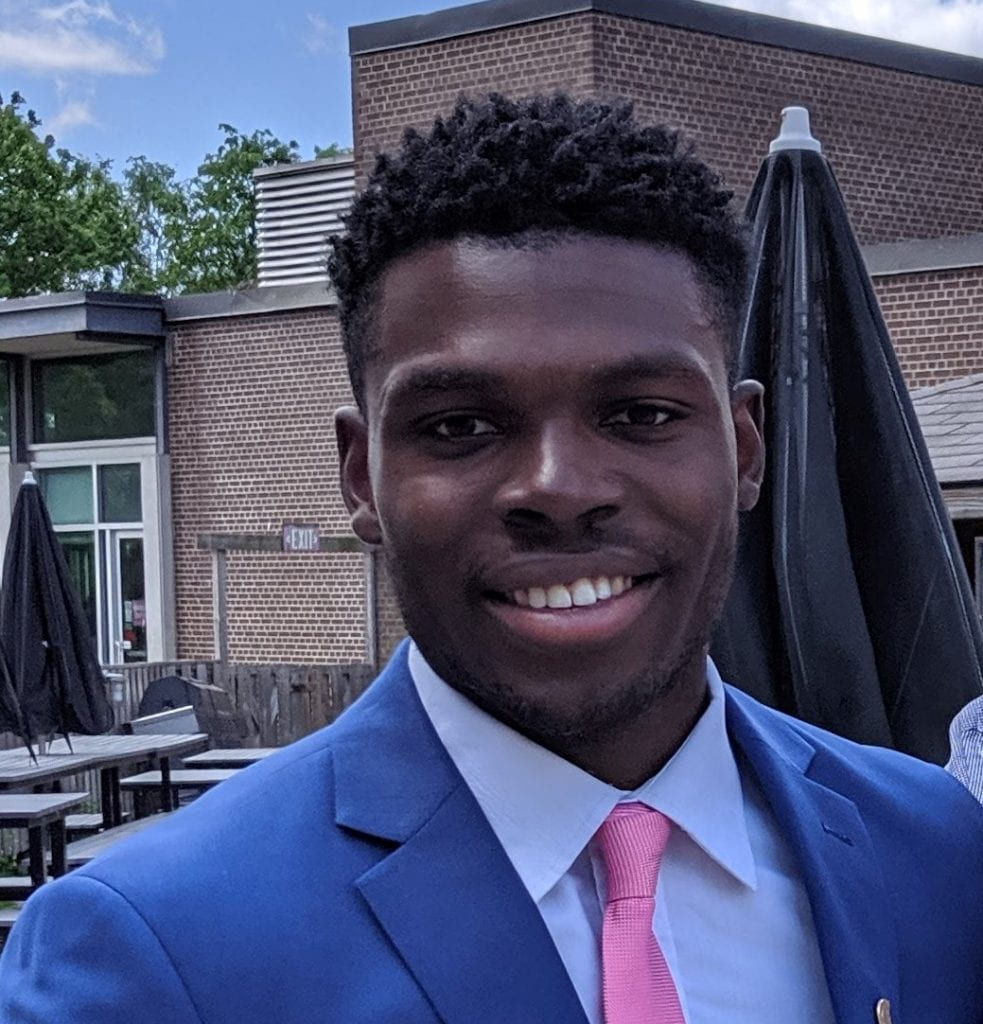
Graduation Date: Winter 2022
My research looks into the geography of K-12 education in terms of availability and accessibility to on-reserve Indigenous Peoples and the relationship it has with educational attainment. I originally chose to do an MRP however with the project I had in mind and my interests my supervisor, Dr. Al Lauzon, encouraged me to transfer into the thesis stream.
What is one book/article that you would recommend to an interested student looking into CDE?
There are two:
Johnson et al. was read in Foundations of Capacity Development and Extension and really made things click on how multiple knowledges that may seem disparate can be woven together in a respectable way. It really opened my eyes towards the treasure trove of methods available to us as researchers within CDE, all we need to do is be creative and willing to learn.
The second article by Deer I found and read during the same class as the previous article. This article gave me an appreciation for the difficulties many cross-cultural organizations face in implementing culturally appropriate programming due to varying levels of capacity within organizations. However, on the other side of the difficulty are great lessons and a better program for those it serves.
Johnson, J., Howitt, R., Cajete, G., Berkes, F., Louis, R., Kliskey, A. (2016). Weaving Indigenous and sustainability sciences to diversify our methods. Journal of Sustainability Science, 11, 1-11. DOI 10.1007/s11625-015-0349-x
Deer, F. ( 2014). The Institutional and Community Capacity for Aboriginal Education: A Case Study. Journal of In Education. 19(3). DOI https://doi.org/10.37119/ojs2014.v19i3.137
What is one piece of advice that you have for future CDE students? And current CDE students?
Start thinking about your MRP/Thesis early and talk about it with as many people as possible. The more you talk and share your elevator pitch the more confident you become in what you are doing. It also helps in finding flaws in your approach or limitations in your thinking. Find a good circle of friends in any discipline and just talk about your work early and often.
What is your career/job now?
Currently, as I finish, I got hired by a non-profit called ReForest London in which I work as their Signal Boost Initiative Coordinator, developing and facilitating environmental workshops and learning opportunities for the general public. CDE places a large focus on facilitation and many of those tools and skills I use constantly in my day to day.
I am also using the project management and public engagement skills learned in CDE to be a major part of the development of the new Westminster Ponds Centre through public consultations and planning.
What I have learned in CDE regarding both soft skills and technical skills has been invaluable, and it helps to set me apart from others.
Check out what Shaq does as a coordinator https://www.reforestlondon.ca/our-team/shaquille-sealy/
Katrin Sawatsky, a graduate of the CDE program

Graduation Date: October, 2014
Describe what your research was about?
My thesis, Living Transition: Stories of Resiliency, a Heuristic Study, explored the transition network (an ecological movement of communities worldwide coming together to reimagine and rebuild our world) to better understand the meaningful ways that communities are engaged in discussions around sustainability. Further, my research unpacked the motivations for volunteer involvement in this movement, and explored the tools and approaches used to prevent burnout and promote well-being among volunteers. My approach was qualitative and focused on storytelling, oral histories and documentary filmmaking to understand the lived experience of research participants. It was heuristic in nature, meaning that self-inquiry and dialogue with others supported discovering the underlying meanings of important human experiences.
Why did you choose to do an MRP/thesis?
I chose to do a thesis because it allowed me to do a deep dive into both the literature and exploration of the lived experience of my research participants, allowing an integrated and holistic process to emerge.
What is one book/article that you would recommend to an interested student looking into CDE?
‘Doing Democracy in Circles’ is an excellent resource that was imparted on students during the program. It explores the Indigenous methodology of utilizing Circles as a framework and powerful tool for engaging communities in planning. It is co-authored by SEDRD’s own Jennifer Ball and Wayne Caldwell, and it is a resource I refer back to frequently in my practice today.
What is one piece of advice that you have for future CDE students? And current CDE students?
I would recommend to move with the flow of program and research, as in, loosening your grip and allowing things to grow in an organic way. To practice surrendering to the process and being okay with not knowing the answers; understanding that the gold isn’t in the final product, but in the process. Research will grow and emerge and likely unfold differently than you expect. Allowing yourself to feel through the process, reflect on your own lessons learned, and being gentle with yourself along the way will all support your well-being during this exciting (and sometimes challenging) journey.
What is your career/job now? Did CDE help you attain this career/job?
I am now a Capacity Development and Indigenous Housing Specialist. My mission is to build lasting partnerships, founded on the mutual values of reciprocity, reliability and respect. I run a private consulting practice where I partner with Indigenous communities to broaden locally-based exercises and policies that address housing, prosperity, autonomy and well-being — ultimately strengthening community. My approach honours Indigenous methodologies built on ceremony and meaningful consultation. Areas of work range from: housing (developing locally-based policies and programs that increase the quality, rights and access to housing on-reserve), to addressing food security and its intersection with economic development, environmental stewardship, well-being and cultural reclamation.
CDE has helped me immensely in this career – it taught me about deep listening, how to hold space to allow for meaningful dialogue to occur, to be reflective in the process, how to engage communities in planning exercises and advance local priorities, and how to build meaningful relationships based in reciprocity, reliability and respect in the process. Although I acquired many technical skills after my M.Sc., the CDE program provided an integral foundation that I build my practice on today.
Check out Katrin’s website: https://katrinsawatzky.ca/


